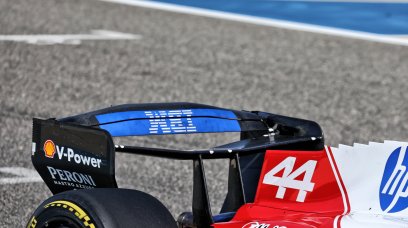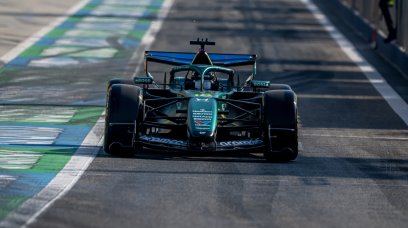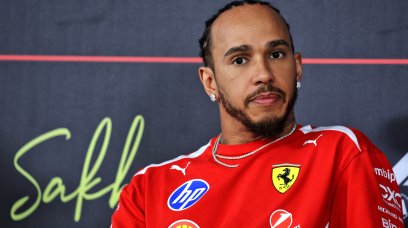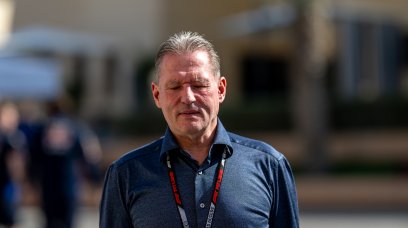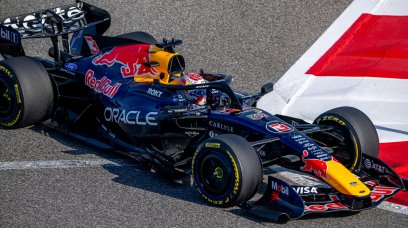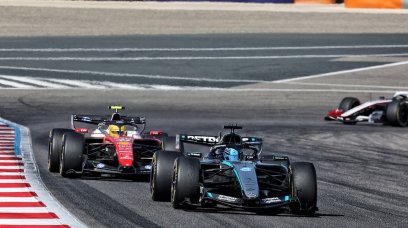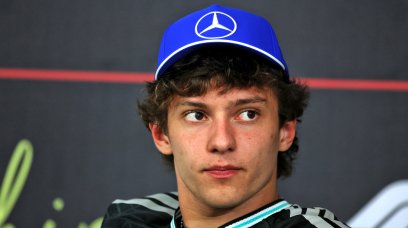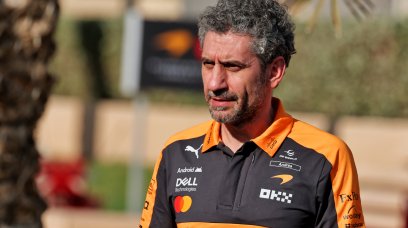Fernando Alonso has been penalised after being found guilty of 'potentially dangerous driving' which resulted in George Russell's late-race crash at the Australian Grand Prix The Aston Martin driver had been accused of brake-testing Russell as the Mercedes closed in on their penultimate lap of the Melbourne event. The eventual race winner Carlos Sainz had already started the final lap. Briton Russell rapidly converged onto the back of Alonso's car in the braking zone, sliding into the gravel and hitting the barrier, before his W15 spun back onto the racing line and almost inverted as the chassis climbed atop the damaged wheels on the left-hand side of the car. Data from Alonso's car post-race seemed to indicate a vastly slower entry speed into the corner compared to the lap previously, with the Spaniard complaining about an engine issue on the cooldown lap following the conclusion of the race. Despite the suggestions, Russell had called the investigation "bizarre", but the stewards have decided to impose a post-race drive-through penalty, converted to 20 seconds added onto his race time after finding Alonso guilty of potentially dangerous driving. The verdict drops him to eighth, elevating team-mate Lance Stroll to sixth and RB's Yuki Tsunoda to seventh.
A thorough stewards' report into the incident read: "Car 63 crashed at the exit to turn 6 on lap 57. The stewards have extensively reviewed the situation that occurred prior to the crash. "Car 63 (George Russell) was following Car 14 (Fernando Alonso) approximately 0.5 seconds behind as the cars approached turn 6. Alonso explained to the stewards that he intended to approach turn 6 differently, lifting earlier, and with less speed into the corner, to get a better exit. "Russell explained to the stewards that from his perspective, Alonso’s manoeuvre was erratic, took him by surprise and caused him to close distance unusually fast, and with the resulting lower downforce at the apex of the corner, he lost control and crashed at the exit of the corner. There was no contact between the cars. "Telemetry shows that Alonso lifted slightly more than 100m earlier than he ever had going into that corner during the race. He also braked very slightly at a point that he did not usually brake (although the amount of brake was so slight that it was not the main reason for his car slowing) and he downshifted at a point he never usually downshifted. "He then upshifted again, and accelerated to the corner before lifting again to make the corner. Alonso explained that while his plan was to slow earlier, he got it slightly wrong and had to take extra steps to get back up to speed. "Nonetheless, this manoeuvre created a considerable and unusual closing speed between the cars. In considering the matter the stewards focused solely on the wording of the regulation which states “At no time may a car be driven unnecessarily slowly, erratically or in a manner which could be deemed potentially dangerous to other drivers or any other person.” (Article 33.4) "Specifically, in this case, the stewards have not considered the consequences of the crash. Further, the stewards considered that they do not have sufficient information to determine whether Alonso’s manoeuvre was intended to cause Russell problems, or whether as he stated to the stewards that he simply was trying to get a better exit. "Should Alonso have the right to try a different approach to the corner? – yes. Should Alonso be responsible for dirty air, that ultimately caused the incident? – no. "However, did he choose to do something, with whatever intent, that was extraordinary, ie lifting, braking, downshifting and all the other elements of the manoeuvre over 100m earlier than previously, and much greater than was needed to simply slow earlier for the corner? - yes by his own account of the incident he did, and in the opinion of the stewards by doing these things, he drove in a manner that was at very least “potentially dangerous” given the very high-speed nature of that point of the track." Explaining the severity of the penalty, the report continued: "This season, the FIA Formula 1 penalty guidelines, including for this breach have been reset and increased to a baseline of a 10s penalty. "In addition, when there is some aggravating circumstance, we consider a Drive Through Penalty. "In this case we consider that Alonso affirmatively choosing to perform an unusual manoeuvre at this point to be an aggravating circumstance, as opposed to a simple mistake."
Most read
